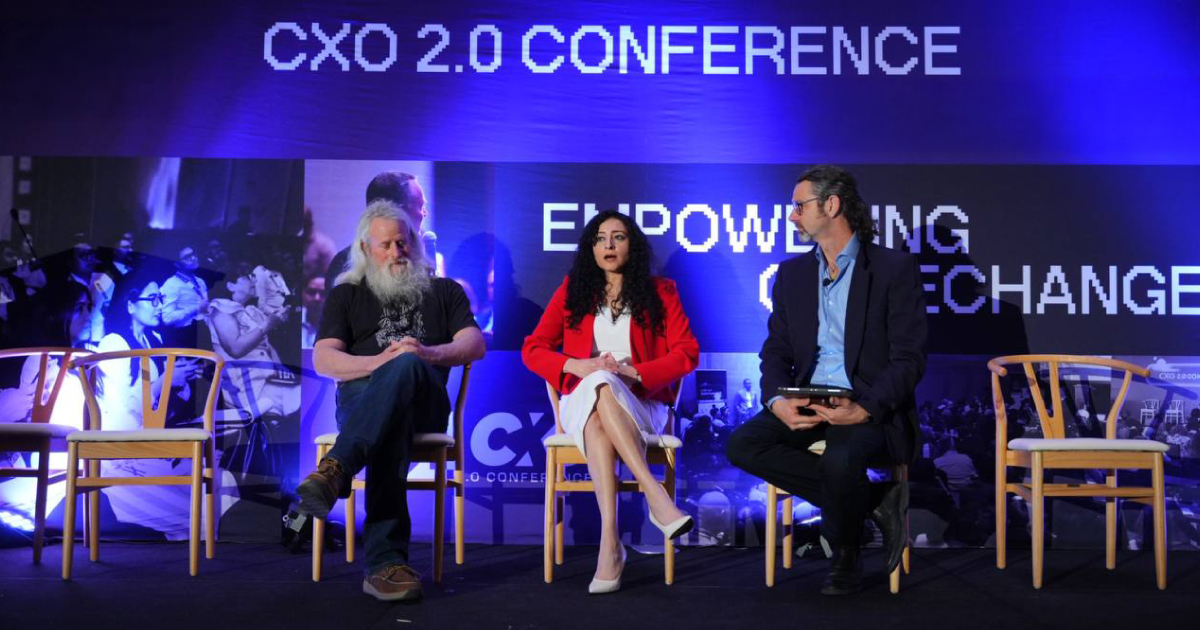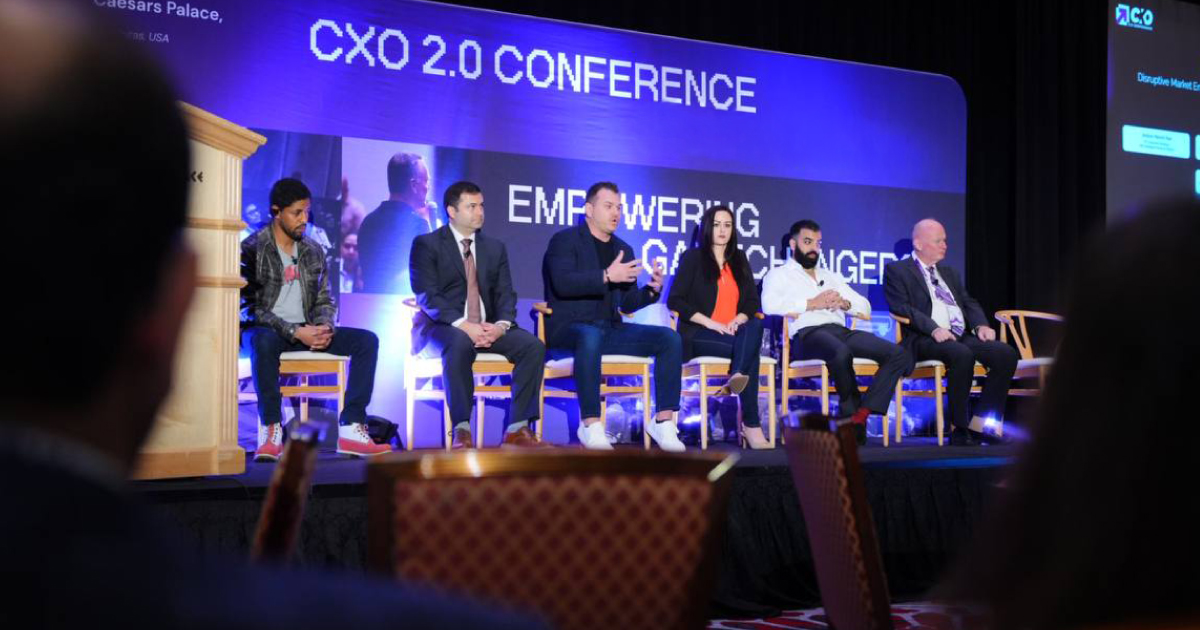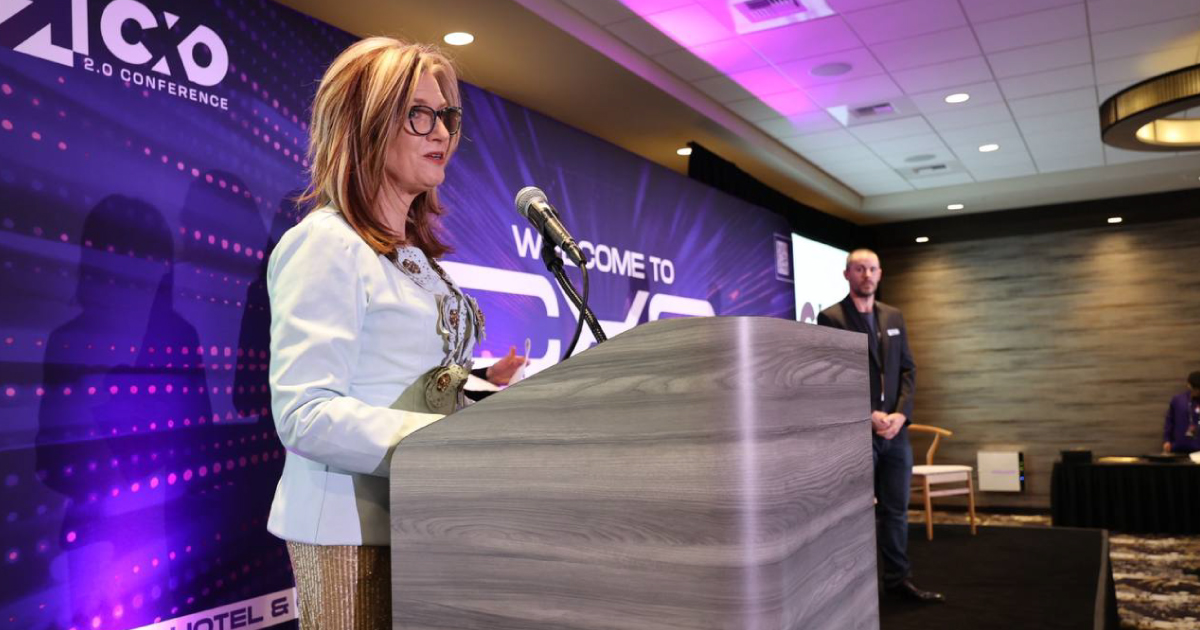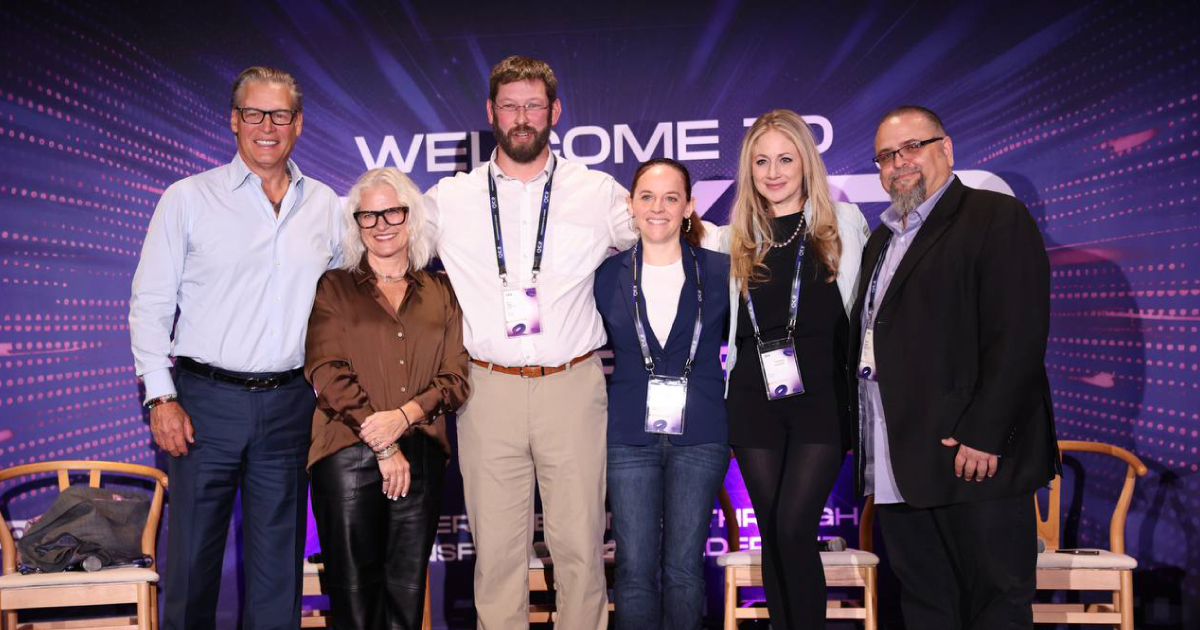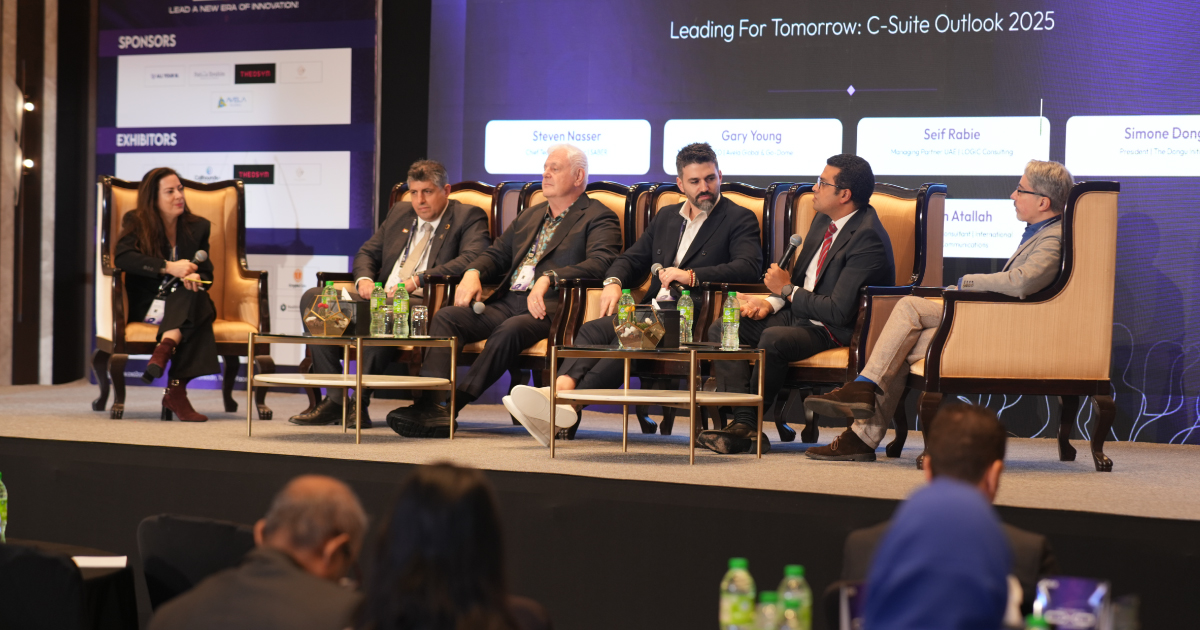The pace of business is accelerating, and leadership is evolving right alongside it. In 2025, great leaders don’t just manage—they inspire, spark innovation, and cultivate workplaces where growth and adaptability go hand in hand.
As technology reshapes how we connect and collaborate, and expectations rise across every sector, there has never been a better time to strengthen your leadership journey. The CXO 2.0 Conference is where these powerful conversations come to life. Industry changemakers gather to explore bold ideas, share real-world solutions, and build momentum for the future.
Our 2025 leadership conference creates a space to grow, connect, and lead with purpose. Attendees gain actionable insights, forward-looking strategies, and inspiring perspectives from leaders who are embracing change and shaping what’s next.
Here, we highlight seven key leadership trends that are helping visionary leaders not only adapt to the times but confidently steer their teams and organizations toward lasting success.
Purpose-Driven Leadership Beyond Profits
Today’s leaders know that business success goes beyond the bottom line. It’s about aligning goals with values that matter to employees, customers, and society as a whole. When leaders connect their mission to meaningful causes, they inspire trust and loyalty while attracting top talent. A clear sense of purpose helps teams understand how their work contributes to something bigger. By nurturing this connection and communicating it consistently, leaders can strengthen their organizations from the inside out.
In 2025, purpose-driven leadership, highlighted at our global leadership summit, will be a cornerstone of sustainable growth. The global leadership summit provides a valuable platform for executives to share insights, learn best practices, and explore how purpose-driven strategies can lead to long-lasting success. Leaders attending the CXO 2.0 Conference will gain fresh perspectives on aligning values with business objectives to build stronger, more resilient organizations.
Human-Centered Digital Transformation
Digital transformation is about more than just adopting new technologies. It’s about empowering people, enhancing their experience, and making sure they have the skills and support to thrive. Leaders who focus on the human side of digital change can create organizations that are more resilient, innovative, and future-ready.
- Prioritize employee experience alongside technology adoption.
- Invest in digital literacy and upskilling to help teams adapt and thrive.
- Promote collaboration and empathy throughout the transformation journey.
Putting people at the heart of digital change means creating environments where innovation thrives and teams feel supported. Leaders who prioritize their people build organizations that adapt quickly, seize opportunities, and drive meaningful progress. A human-centered approach ensures digital transformation empowers everyone, creating a more engaged and future-ready workforce.
Adaptive Leadership In An Uncertain World
Leading in today’s unpredictable business environment requires more than just strategy—it demands adaptability and courage. Constant market shifts and disruptions test even the most experienced executives. Adaptive leadership empowers organizations to navigate change with confidence. It is about creating a culture where experimentation is celebrated and setbacks become stepping stones for growth.
Leaders who adopt this approach build resilience and empower their teams to tackle challenges directly. At our global leadership summit, this powerful mindset takes center stage. Participants discover practical strategies to embrace change, drive innovation, and inspire confidence in an ever-evolving landscape.
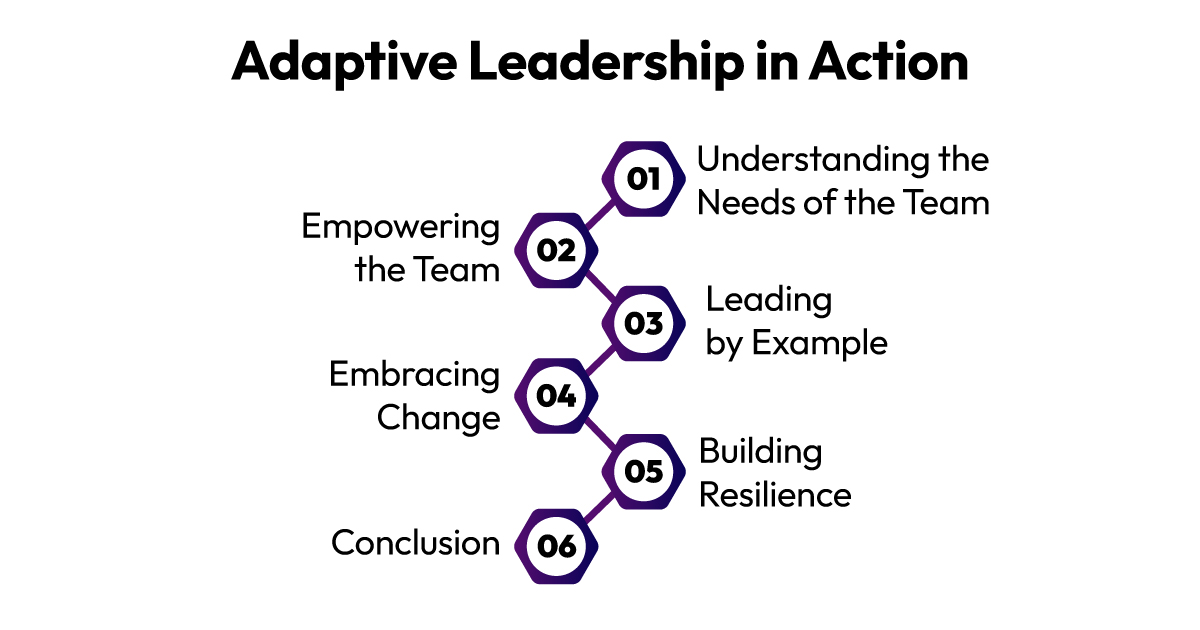
Source: FasterCapital
Diversity, Equity, And Inclusion As A Growth Imperative
Diversity, equity, and inclusion (DEI) have evolved from being mere side initiatives to becoming essential drivers of innovation and organizational performance. By valuing diverse perspectives, organizations enhance problem-solving, creativity, and cultural competence. Prioritizing Diversity, Equity, and Inclusion (DEI) attracts top talent, drives loyalty, and positions companies for long-term success. It is no longer a checkbox—it is a business imperative.
- Diverse teams bring fresh perspectives and enhance problem-solving.
- Inclusive workplaces attract top talent and build a sense of belonging.
- Equity ensures that opportunities for growth and success are accessible to everyone.
At the CXO 2.0 Conference, DEI takes center stage as a key driver of innovation and organizational growth. It's not about ticking boxes, but about creating cultures where everyone feels valued and heard. By prioritizing DEI, organizations attract top talent, strengthen collaboration, and drive success in today’s interconnected business world.
Data-Driven Decision-Making With A Human Touch
Leaders today have more data at their fingertips than ever before, but numbers alone cannot drive lasting success. Authentic leadership comes from blending data with empathy and intuition, ensuring every decision considers its real-world impact. At our global leadership summit, experts share how to navigate this balance effectively. They reveal how to harness analytics while keeping people at the center of every decision. It is about understanding how choices affect teams, customers, and communities, and using data as a guide rather than a substitute for human judgment. This balanced approach fuels meaningful progress and sustainable success.
Continuous Learning & Leadership Development
Today’s business leaders face constant change and unprecedented challenges. To stay ahead, they must embrace learning as an ongoing journey rather than a one-time achievement. Ongoing development helps leaders navigate evolving landscapes, embrace innovation, and inspire their teams. Developing both technical skills and emotional intelligence ensures leaders remain agile and confident. A growth mindset within leadership teams empowers organizations to thrive, building resilience and readiness for the future. Prioritizing continuous learning enables leaders to tackle uncertainty head-on and cultivate sustainable success across every aspect of the business.
Wellbeing-First Cultures As A Competitive Advantage

Employee well-being is no longer a perk—it’s a strategic priority that drives engagement, performance, and retention.
- Prioritize mental health and create a psychologically safe work environment.
- Offer flexible work arrangements that support work-life balance.
- Make well-being a core part of your organizational culture, not just an afterthought.
Prioritizing employee well-being supports productivity, engagement, and loyalty, creating a thriving workforce. When organizations make well-being a strategic focus, they become employers of choice, attracting and retaining top talent in a competitive market. A well-being-first culture enhances resilience, collaboration, and overall performance, contributing to sustainable growth and success.
To Sum It Up
The year 2025 is set to redefine leadership. Embracing the seven key leadership trends is essential for organizations to navigate challenges and seize opportunities. Purpose-driven leadership, human-centered digital transformation, and adaptive leadership are shaping the new business landscape. Diversity and inclusion, data-driven decision-making, continuous learning, and well-being are now critical to success. At our leadership conference in 2025, we will dive deep into these trends, equipping you to inspire teams and build resilient organizations. Join us at the CXO 2.0 Conference to learn from experts and shape the future of leadership together.
Let’s build organizations that are ready to thrive!
FAQs
Q. Why is purpose-driven leadership more relevant now than ever before?
A. Purpose-driven leadership aligns organizations with the values and expectations of today’s workforce and customers. It builds trust, loyalty, and a sense of shared mission, which are crucial in navigating today’s dynamic business landscape.
Q. Why is empathy important in data-driven decision-making?
A. Empathy ensures that decisions based on data reflect the human impact behind the numbers. Leaders who blend empathy with analytics make choices that are ethical, sustainable, and aligned with company values. This balance leads to better outcomes for employees, customers, and communities alike.
Q. What are the common challenges organizations face during digital transformation?
A. Resistance to change can slow progress and lower morale. Skill gaps may emerge as new technologies are adopted, leaving some employees behind. Addressing these challenges requires clear communication, ongoing training, and a focus on people rather than just technology.
Q. What can attendees expect from the CXO 2.0 Conference agenda?
A. The agenda includes keynote sessions, interactive panel discussions, and networking opportunities for attendees. Sessions will provide practical tools and strategies that attendees can apply in their organizations. It is designed to inspire fresh thinking and actionable takeaways.
Q. Will there be opportunities for networking at the CXO 2.0 Conference?
A. Yes, the conference offers structured networking sessions, including business card exchanges and networking hours. These opportunities enable attendees to connect with peers, share experiences, and exchange ideas. Building relationships with industry experts can open doors for future collaborations and partnerships.


